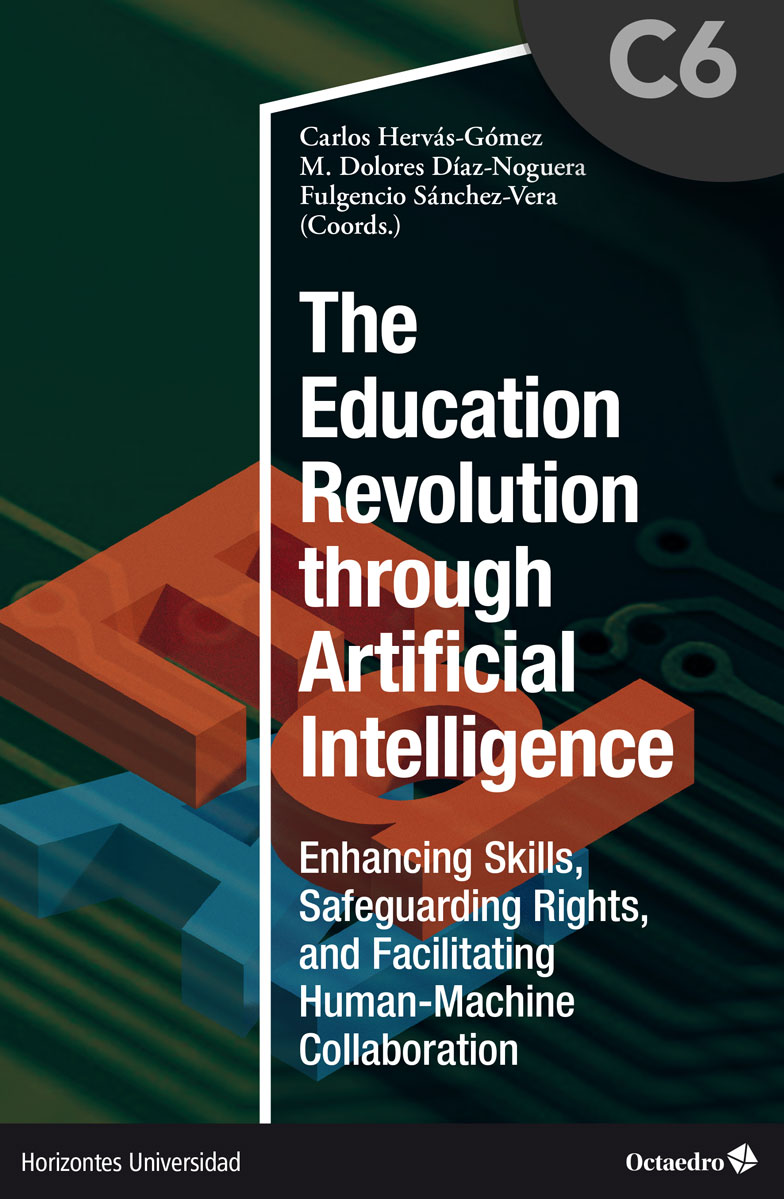FICHA TÉCNICA
Fecha de publicación:
04/11/2024
Doi del capítulo:
Título del libro: The Education Revolution through Artificial Intelligence
URL del libro:
ISBN del libro: 9788410282582
DOI del libro:
Abstract
New technologies for use in the classroom are posing more and more challenges, the repercussions of which are visible both in the academic, personal and social contexts. Tools to assist in academic text writing, such as Grammarly, online translators and ChatGPT, are breaking into the daily teaching life of university students, transforming, to a large extent, not only the process of acquiring knowledge and skills, but also the necessary linguistic abilities for the production of academic essays. This generates concerns in teachers regarding the teaching process (what, how and why to teach), in addition to reflections on the ethical use of AI. Through this research article, it is proposed, on the one hand, to determine the ethical perception of students in relation to its use in the academic field, specifically the use of ChatGPT; and, on the other hand, to reflect on the role of the faculty member in the inclusion of this tool in the teaching-learning process. To this end, a field work was carried out with first-year undergraduate students of the Degree of Teaching and Social Work at the Public University of Navarra (UPNA), Spain. Lastly, this work concludes with a proposal that provides a teaching performance model for future teachers to manage the impact of AI in the daily classroom.
Palabras clave
Autores
PhD Alazne Ciarra Tejada
Universidad Pública de Navarra, Spain
alazne.ciarra@unavarra.es
https://orcid.org/0009-0000-6320-7437
PhD Diego Ernesto Parra Sánchez
Universidad Pública de Navarra, Spain
diego.parra@unavarra.es
https://orcid.org/0000-0002-5364-1667
Cómo citar
Ciarra Tejada, A., Parra Sánchez, D. E. (2024). The Role of the Faculty Member as an Ethical mentor in the Use of AI in the Academic Field. Ethical perception using ChatGPT in the writing of academic essays. In Hervás-Gómez, C., Díaz-Noguera, M. D., Sánchez-Vera, F. (Coords.), The Education Revolution Through Artificial Intelligence (pp. 87-102). Octaedro. https://doi.org/10.36006/09651-1-06
Referencias bibliográficas
«Coehckelbergh, M. (2020). Ética de la inteligencia artificial. Cátedra.
Delgado, M. Á., & Viciana, J. (1999). La programación e intervención didáctica en el deporte escolar. Aportaciones de los diferentes estilos de enseñanza. Apunts. Educación Fisica y Deportes, 56, pp. 17-24.
Floridi, L. (2023). The Ethics of Artificial Intelligence: Principles, Challenges, and Opportunities. Oxford University.
García, F., Llorens, F., &Vidal, J. (2024). La nueva realidad de la educación ante los avances de la inteligencia artificial generativa. RIED-Revista Iberoamericana de Educación a Distancia, 27(1), 5.
Railton, P. (2020). Ethical Learning Natural and Artificial In Ethics of Artificial Intelligence. Oxford University.
Rico, M. L., &Ponce, A. I. (2022). El docente del siglo xxi. Perspectivas según el rol formative y profesional. RMMIE, 27(92), 77-101.»
